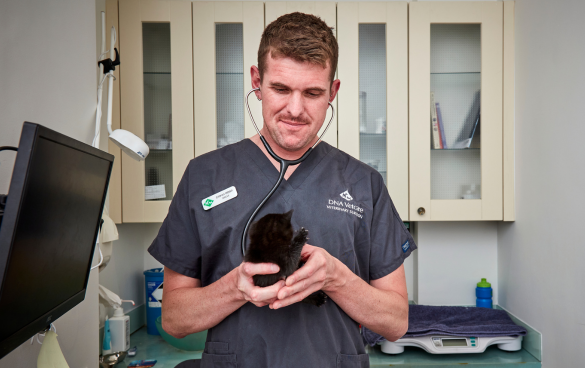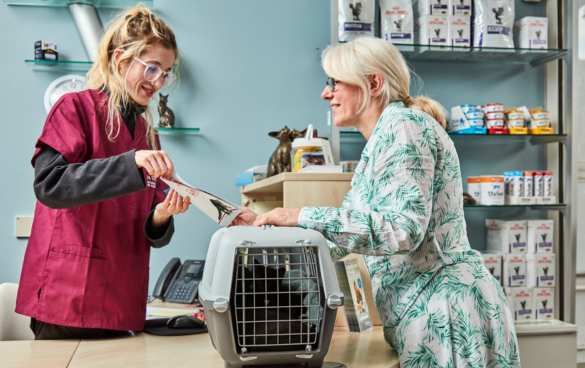Feline Leukaemia Virus (FeLV) is one of the most serious infectious diseases affecting cats, and kittens are particularly vulnerable.
As a cat owner, understanding feline leukaemia in kittens is crucial, not only for your own pet’s health but for the wellbeing of other cats they may come into contact with.
Our veterinary team is committed to helping you protect your kitten from this potentially fatal virus. Here’s what every pet parent should know, including symptoms, life expectancy, and the importance of your cat’s vaccination schedule.
What Is Feline Leukaemia?
Feline Leukaemia Virus (FeLV) is a contagious virus that weakens a cat’s immune system and can lead to cancer, blood disorders, and other life-threatening conditions.
It spreads through saliva, blood, nasal secretions, and urine or faeces.
Kittens are at a higher risk of Feline Leukaemia
Kittens are especially at risk because their immune systems are still developing. Exposure to FeLV at a young age can lead to a lifelong infection, often with more severe consequences than in adult cats.
If your kitten is allowed outdoors, has contact with unvaccinated or stray cats, or was adopted from an unknown background, their risk increases significantly.

The Symptoms of Feline Leukaemia in Kittens
FeLV is often called a “silent killer” because symptoms may not appear immediately. When symptoms do appear, they can be varied and sometimes mistaken for other illnesses.
Here are some common feline leukaemia in kittens symptoms to watch for:
- Persistent fever
- Loss of appetite or weight loss
- Lethargy or weakness
- Swollen lymph nodes
- Pale gums (a sign of anaemia)
- Recurrent infections
- Diarrhoea or vomiting
- Breathing difficulties
If you notice any of these signs in your kitten, don’t delay, contact our team for testing.
How long can a kitten live with Feline Leukaemia?
There is no single answer, as it depends on the kitten’s immune response and whether they develop a persistent infection.
Some kittens can live a few months after diagnosis of FeLV, while others may survive for several years with supportive care.
Sadly, many kittens with progressive FeLV infection succumb within 2–3 years of diagnosis.
This is why prevention, especially through vaccination, is so important.
Vaccinating against FeLV
The best defence against feline leukaemia is prevention. The FeLV vaccine is safe and effective, especially when given early.
At Kitten to Cat, we recommend:
- A blood test to determine if your kitten is FeLV-positive.
- Book your kittens vaccinations at 8–9 weeks of age, followed by a booster 3–4 weeks later.
- Schedule annual vaccination boosters for kittens and cats at ongoing risk, such as those who go outdoors.
Even if your kitten is strictly indoors, consider the vaccine if you have other cats, foster animals, or there’s a chance of outdoor exposure.

When we like to see kittens
We recommend bringing your kitten in as early as 8 weeks old for their first health check and FeLV test.
We often combine this visit with their first vaccinations to minimise stress and ensure they’re protected right away.
Our tailored kitten vaccination plans are based on age, risk factors, and lifestyle. Whether your kitten is a pampered indoor companion or an adventurous explorer, we’ll advise on the best FeLV prevention schedule for them.
Book your kittens FeLV vaccination today
Feline leukaemia in kittens is serious, but it’s also preventable. By vaccinating early and staying informed, you give your kitten the best chance at a long, healthy life.
Whether you need FeLV testing, vaccinations, or expert advice on kitten care, we’re just a call or click away.





